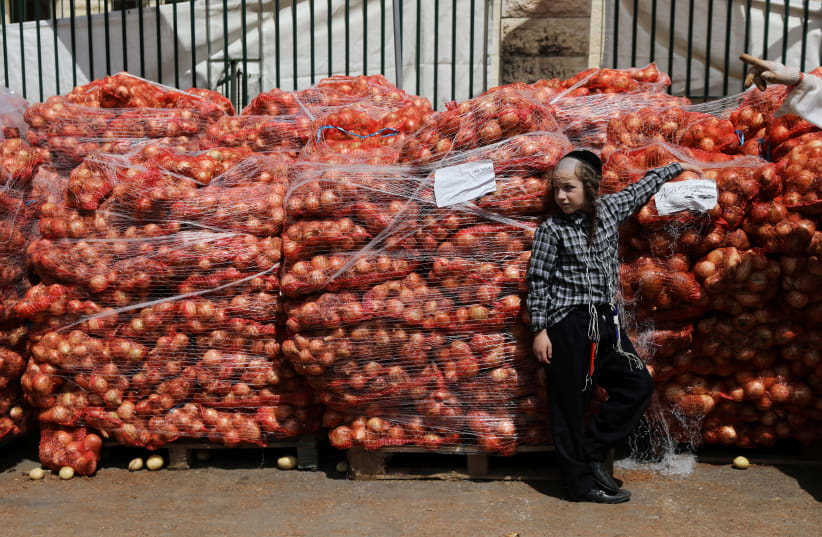The Labor, Social Affairs and Social Services Ministry will issue 30,000 food vouchers of NIS 300 each to families across Israel to aid them during the upcoming Passover holiday.
The total amount spent by the ministry will be NIS 9 million.
The vouchers will be available to those that are not currently included in the ministry’s Food Security Program and are not defined as elderly citizens who receive food supplies for their homes. They will be sent to local authorities by quotas and distributed according to those registered in social services departments.
The ministry instructed the social services departments of the local authorities to favor single parents, families of at-risk children, families with children with special needs and families or individuals who are in special distress at the discretion of each department’s director.
The food vouchers will be distributed starting the week of April 5 by Colel Chabad, the oldest charitable organization in Israel.
This is part of an ongoing collaboration between the ministry and the organization.
The vouchers will enable the purchase of food items via a website, telephone or physical purchase at approved stores.
Labor and Social Affairs Minister Ofir Akunis said: “I instructed the issuance of the food vouchers as part of the expansion of the Food and Social Security Program under my leadership, in light of the state of emergency in the State of Israel, to ensure that families in financial distress gain food security in these circumstances, especially during Passover.”
The move is similar to an initiative Akunis began in February, when NIS 6m. was allocated to assure 11,000 Israeli families they would be provided with food coupons before the end of April.
Israel has been in a state of near paralysis since the coronavirus outbreak. Three more Israelis died from the disease on Sunday and one on Monday morning, bringing the total number of victims to 16, as the number of infected people surpassed 4,000.
Severe restrictions on movement have been implemented by the government, with people only allowed to leave their homes for work, medical reasons, to transport a child or to buy food.
